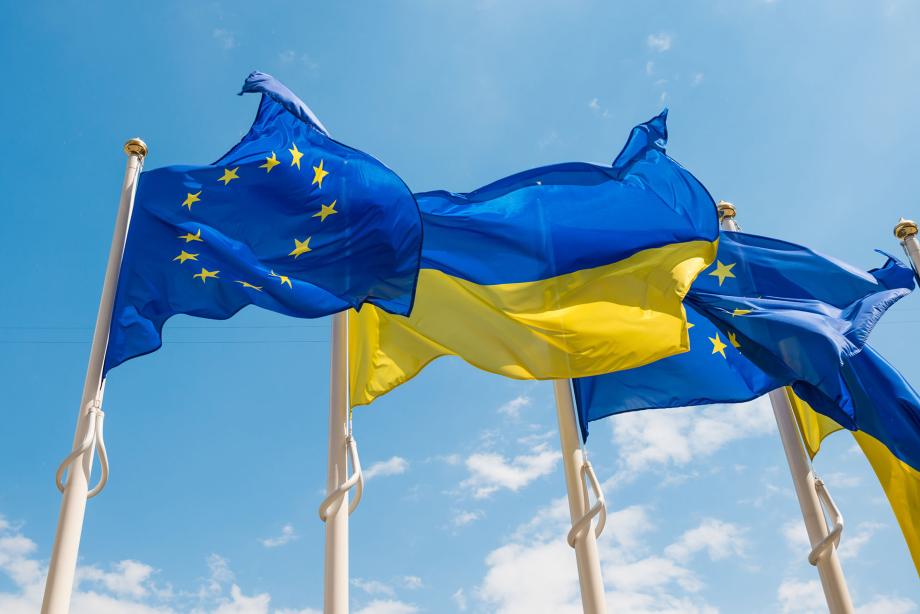Opinion: We don’t need strategic autonomy. What the EU needs now is strategic responsibility.

If EU security policy is going through a watershed moment, then this should show in our language. Russia’s invasion of Ukraine, actually a war on Europe and its fundamental values, is an excellent opportunity to rethink our efforts to become a global and geopolitical actor.
As our thinking needs an overhaul, so does our terminology. Especially because in the Brussels Bubble we now mostly agree that we have been irresponsibly wrong in the past, about Russia, about the Eastern Neighbourhood, about the importance of armed force in the 21st century and about what follows from all that for EU security strategy.
Strategic autonomy (sometimes aka strategic sovereignty or simply European sovereignty), is still in high standing in places such as Brussels, Paris and Berlin. Whereas in Central Europe, in the eastern member states from the Baltic countries to the Visegrad Four to Romania and Bulgaria, the term is met with strong distrust. Defenders of ‘strategic autonomy’ often claim that it primarily applies to the reduction of energy dependence and of reliance on global supply chains, as well as to a stronger properly European tech sector. But critics of the concept, especially in Central Europe, have always suspected that its main thrust is anti-Atlanticist: that Europe should become ‘autonomous’ from to an America which is allegedly decoupling from Europe, no matter who is in the White House.
I believe strategic autonomy is now hopelessly tainted, particularly in a situation in which Central Europeans feel that West Europeans owe them an apology for having belittled their warnings about a dangerous Russian revisionism. Here's my proposal: Let’s rename the project. What the EU really needs is strategic responsibility. That means responsibility vis-a-vis our own citizens, our eastern partners and our allies across the Atlantic.
The citizens of the EU and its member states have a right to two things more than anything: protection from aggressive authoritarianism, and honesty. Protection simply means defence and deterrence, of course coupled with diplomacy where it makes sense. But diplomacy not backed up by military power doesn’t. The EU’s underlying assumption of the past two decades, that military power would become relatively less relevant than technology, economics and other civilian elements, has to be declared null and void. That does not mean a militarised EU, but one which much better than in the past coordinates with NATO, especially when more and more formerly neutral EU member states are about to join the alliance.
Even more important is honesty: Without the US, Europe will not be able to defend itself territorially, effectively deterring authoritarian superpowers such as Russia or China on all levels: hybrid, conventional, tactical nuclear and strategic nuclear. Somebody in Europe needs to give a Churchillian ‘blood, sweat, toil and tears’ speech, telling citizens the truth about the costs of freedom and the sacrifices necessary to maintain it, which are much bigger than we all thought, as well as the probability that we have to live with an unpredictably hostile Russia for some time to come. And if there is not one single obvious European leader to deliver that speech, then there should be 27 national speeches, with the same central message.
Responsibility vis-à-vis our eastern partners means, first of all, helping Ukraine win this unprovoked war. That presupposes at least making sure that Putin cannot walk away from it with something he can sell as a triumph at home. Therefore more and better military equipment to the Ukrainians who are putting our more or less widespread West European pacifism to shame. Moreover, it means security guarantees, together with the US, for a post-war democratic and independent Ukraine and its neighbours. It also means ending the rhetoric about a ‘European perspective’ and ‘everything but institutions’ for the most advanced of the Eastern Partnership countries.
A two-tier Union, with its own institutional solutions for the ‘outer rim’, may be the only way to get this past national parliaments of West European member states. But a bit more creativity than maintaining the status quo must be possible now. Strategic responsibility vis-à-vis our eastern neighbours means protection from a resurgent Russia, but also from China and other autocracies, in our own well-defined interest: Our neighbours’ freedom, stability and prosperity is our freedom, stability and prosperity.
Finally, strategic responsibility entails responsibility vis-à-vis our North American allies. For much too long, NATO has been easy prey for US populists accusing Europe of free-riding at the cost of the US taxpayer. From now on, each idea in Europe’s future security strategy should pass what I would call the Ohio steelworker test: It must be reasonably possible to explain to a Mid-Western US citizen that it is in their interest, too.
Of course, America is already re-pivoting to Europe from its China focus of the past couple of years, as a result of the Ukraine war. But this will only become waterproof, even in case of a Trumpist administration in 2024 or 2028, if we act more responsibly, shoulder more of the defence burden and also seek common ground more actively on China.
The pathological fence-sitting, the fantasising about an imagined position of the EU in equidistance from Beijing and Washington is irresponsible, and it has to end. Even a future Republican administration would have a hard time refusing to engage with European allies who are doing substantially more for their own defence while being indispensable allies vis-à-vis the Chinese Communist Party.
Most importantly, responsibility has a connotation of growing up, of adulthood as opposed to our decades of puerile cheating ourselves, of neglecting our responsibilities vis-à-vis our eastern partners and of ignoring the needs and interests of our allies. That doesn’t exclude elements of autonomy: for example, in energy policy and regarding supply chains. But it requires an honest rethinking of tenets we thought were self-evident but which did not survive five weeks of the Kremlin’s war. Changing the name of the game would help us rise to the occasion of this unique moment in history.
